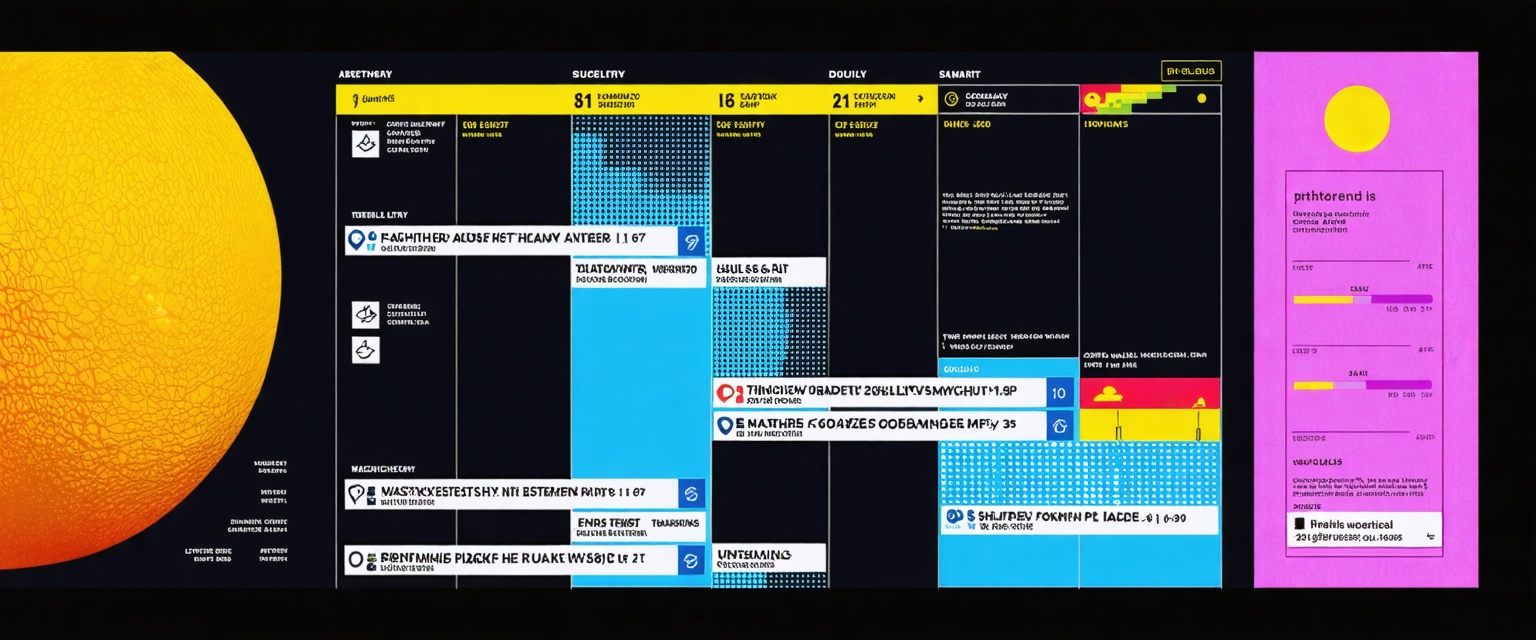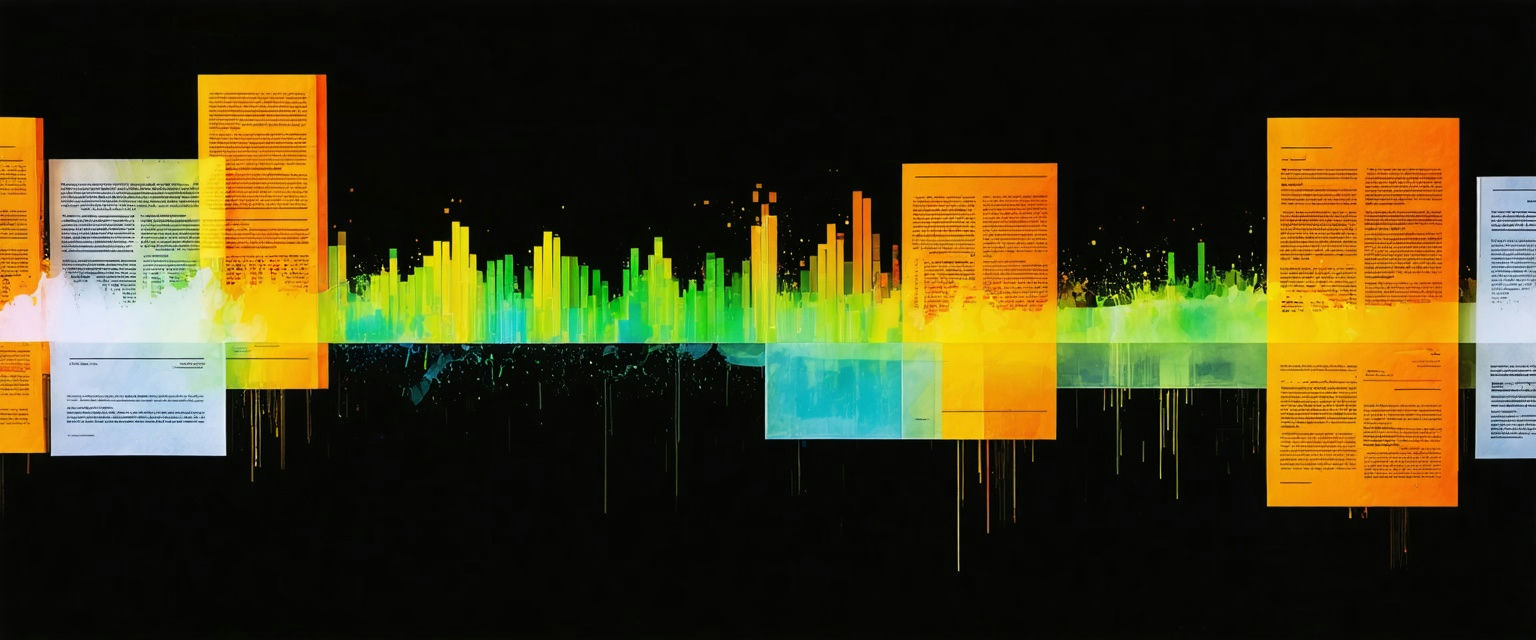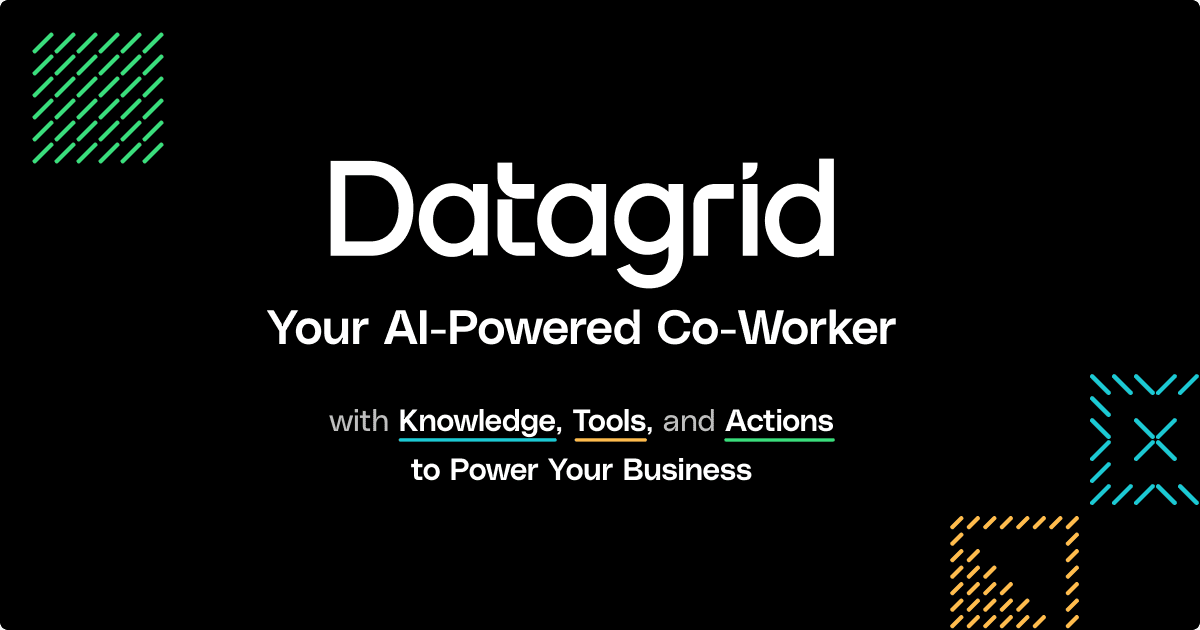Discover how AI agents automate weather impact forecasting for construction schedulers, reducing delays and ensuring safety with precise predictions.
Weather-related delays remain a constant challenge for construction schedulers, often disrupting even the most carefully coordinated plans. Traditional forecasts lack the site-specific accuracy needed to anticipate real project-level impacts, resulting in costly delays, safety risks, and scheduling headaches.
But thanks to advancements in Agentic AI, it's now possible to automate weather risk forecasting with far greater precision. Powered by Datagrid’s specialized data connectors, AI agents deliver actionable insights you can trust. This article explores how AI agents automate weather impact forecasting for construction schedulers.
What Construction Schedulers Actually Need from Forecasting Tools
Weather impact forecasting in construction scheduling predicts how specific weather conditions will influence the progress and safety of construction activities. This process requires analyzing historical weather data, real-time forecasts, and site-specific variables to anticipate potential disruptions for each project phase.
As a construction scheduler, you must consider the type of work being performed, the project location with its unique climate patterns, seasonal weather trends, and contractual obligations regarding weather days.
Effective forecasting goes beyond identifying adverse weather conditions, translates meteorological insights into actionable schedule adjustments. These adjustments include rescheduling weather-sensitive tasks, planning for contingency days, modifying resource allocation, and implementing safety measures for extreme conditions.
You'll need to analyze various weather parameters, including precipitation, temperature extremes, wind speed and direction, humidity levels, and severe weather events like storms or hurricanes.
Accurate weather impact forecasting reduces project delays, controls costs, ensures worker safety, optimizes resource utilization, and improves overall project efficiency. By integrating sophisticated weather forecasting into your scheduling process, you make data-driven decisions that keep projects on track despite unpredictable weather patterns.
Why Construction Schedulers Need AI Agents for Accurate Weather Impact Forecasting
Traditional weather forecasting falls short for modern construction scheduling. Weather impacts at job sites are unpredictable and localized, causing significant delays, safety risks, and budget overruns.
Generic forecasts miss site-specific risks and can't adapt to rapidly changing conditions. This disconnect between general weather predictions and actual job site conditions creates a critical planning gap.
With AI, construction schedulers can plan ahead for disruptions, shift resources based on predicted conditions, and run multiple weather scenarios for backup plans—tasks that were nearly impossible with traditional forecasting methods. Moreover, AI enables automating safety enforcement, ensuring compliance with safety regulations even as conditions change rapidly.
With climate change bringing more extreme weather events, anticipating weather impacts has become crucial for project success. AI-driven forecasting transforms construction schedulers from reactive problem-solvers to strategic planners.
4 Ways Manual Forecasting Wastes Time
Construction schedulers waste valuable hours when relying on traditional weather forecasting methods.
Manual Data Collection and Interpretation
Schedulers spend hours gathering weather data from multiple sources, attempting to interpret generic forecasts, and estimating their impact on specific sites. This labor-intensive process is prone to errors and inconsistencies, creating uncertainty in scheduling decisions.
Constant Plan Updates
When weather patterns change, schedulers must revise timelines repeatedly. This reactive approach creates ripple effects of disruptions across interconnected project elements, consuming time that could be better spent on other critical tasks.
Translating Weather Data into Actionable Decisions
Converting weather probabilities into concrete scheduling decisions requires significant judgment calls. Without AI assistance, schedulers must guess how weather conditions might affect various construction activities, often resulting in either overly conservative or risky decisions.
Reactive Rescheduling
Unexpected weather events force schedulers to drop everything and reorganize tasks on the fly. This emergency rescheduling leaves workers idle, materials vulnerable to damage, and creates costly inefficiencies throughout the project timeline.
The absence of precise, AI-driven weather impact forecasting forces construction schedulers to spend their valuable time managing crises rather than optimizing project execution.
How AI Agents Automate Weather Impact Forecasting for Construction Schedulers
AI agents transform weather forecasting from reactive scrambling to strategic planning through several key capabilities:
Data Ingestion and Analysis
AI agents process comprehensive weather data from multiple sources including historical records, real-time satellite imagery, on-site IoT sensors, and project-specific scheduling information. This holistic approach creates a more complete picture than any single data source. By optimizing data with AI, these agents ensure that vast amounts of information are effectively harnessed to improve forecasting accuracy.
Hyperlocal Predictions
Rather than relying on regional forecasts, AI delivers predictions specific to your construction site. This precision is critical since weather conditions can vary significantly even across short distances.
Automated Schedule Adjustments
AI systems update construction schedules based on weather predictions by identifying optimal windows for weather-sensitive work, reorganizing tasks to minimize disruptions, and reallocating resources based on forecasted conditions.
Real-Time Monitoring and Alerts
AI continuously monitors changing weather conditions, providing real-time AI updates for dangerous weather, notifications when it's safe to resume outdoor work, and updates on how changing conditions might affect critical path tasks.
These capabilities free human schedulers to focus on higher-level decisions while reducing manual work, minimizing costly delays, and creating safer, more efficient construction projects.
Datagrid: AI-Powered Project & Workflow Automation for Construction
Construction project managers must coordinate countless moving parts across multiple projects. Datagrid's AI platform addresses these challenges with targeted solutions.
Intelligent Workflow Orchestration
Datagrid's AI agents continuously monitor project milestones, routing documents, assigning tasks, and prioritizing activities based on schedule impact. This automation ensures your team stays focused on high-value work rather than administrative processes.
Critical Path Management
By analyzing schedules, resources, and task dependencies, Datagrid's AI identifies potential bottlenecks before they derail your timeline. The system suggests practical workarounds to maintain project momentum through challenges.
Resource Optimization
Datagrid examines labor records, equipment utilization, and subcontractor schedules to identify conflicts and opportunities across projects. This analysis maximizes productivity by ensuring the right resources are available at the right time.
Decision Documentation Acceleration
When time-sensitive decisions arise, Datagrid automatically assembles relevant specifications and correspondence, and automates submittal cross-checking. These comprehensive information packages enable faster, more informed decisions when delays aren't an option.
Progress Tracking Automation
Datagrid extracts completion percentages and status updates from daily reports and field documentation to generate real-time project dashboards. This automation eliminates manual data entry while providing instant visibility into project progress.
Meeting Documentation Processing
Datagrid transforms meeting minutes and action items into structured task assignments, automatically tracking completion status and escalating delayed items to appropriate team members. This ensures accountability and prevents critical tasks from being overlooked.
Closeout Documentation Automation
Datagrid streamlines project closeout by collecting, organizing, and validating required documentation from across systems. This automation dramatically accelerates the final project phase that often faces delays and complications.
With Datagrid handling project and workflow automation, including the ability to automate sales proposal tasks, automate database cleanup, and enhance construction communication, your construction team can reduce administrative burdens, improve accountability, and maintain project momentum.
Simplify Construction Tasks with Datagrid's Agentic AI
Don't let data complexity slow down your team. Datagrid's AI-powered platform is designed specifically for teams who want to:
- Automate tedious data tasks
- Reduce manual processing time
- Gain actionable insights instantly
- Improve team productivity
See how Datagrid can help you increase process efficiency.
Create a free Datagrid account.



.jpeg)









